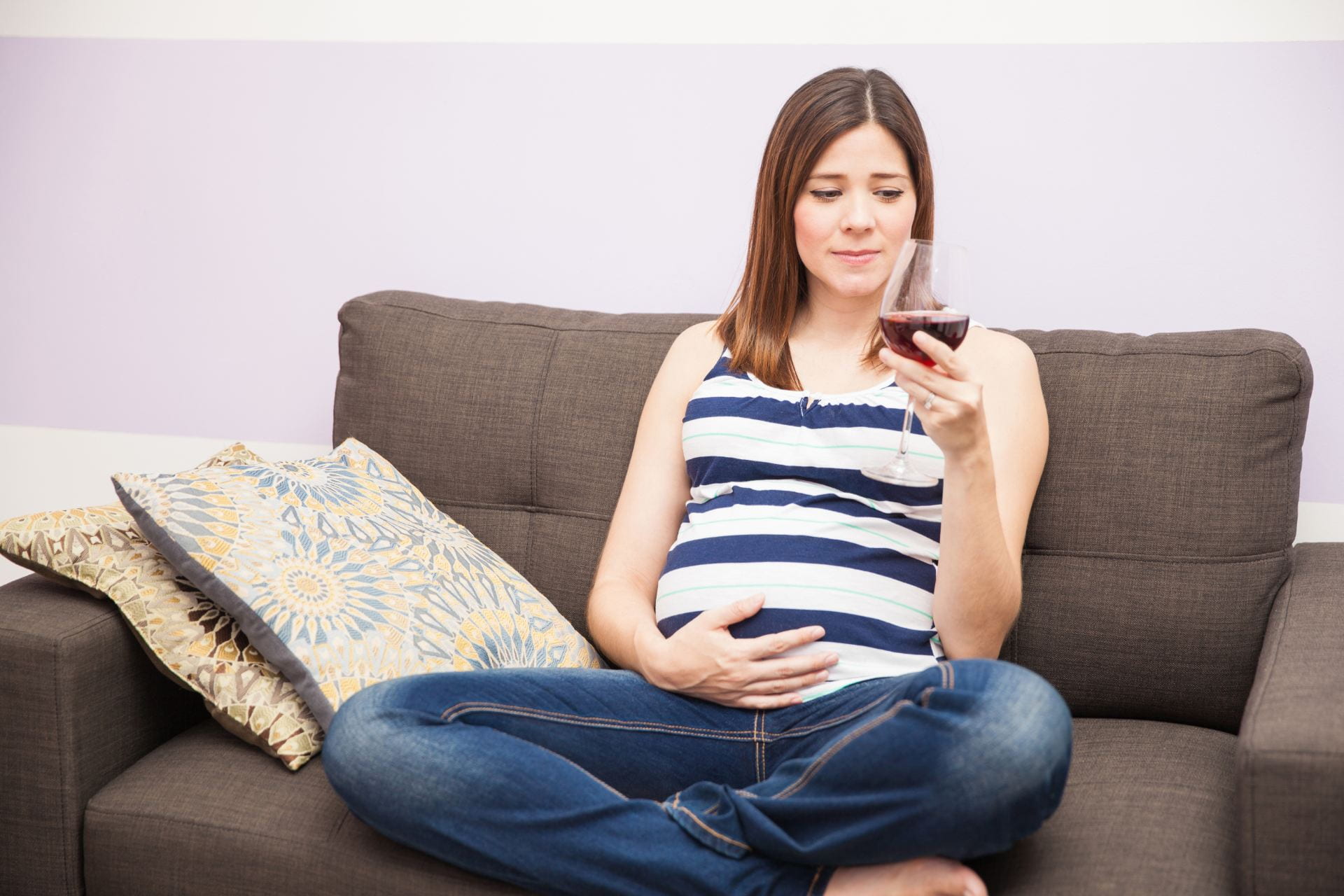Luisa Zuccolo , MRC Integrative Epidemiology Unit and Department of Population Health Sciences, Bristol Medical School, University of Bristol
Cheryl McQuire, School for Public Health Research/Centre for Public Health and Department of Population Health Sciences, Bristol Medical School, University of Bristol
Follow Luisa and Cheryl on Twitter

What’s the issue?
Drinking alcohol during pregnancy continues to stir passionate and polarised reactions. The issue has once again come into sharp focus. In England, the National Institute for Health and Care Excellence (NICE) is proposing to measure all alcohol use in pregnancy and transfer this information to a child’s health records, without explicit agreement from the mother. The aim of the proposal is to ensure better diagnosis and support for those with lifelong conditions caused by drinking in pregnancy that can include problems with learning, behaviour and physical abnormalities, known as Fetal Alcohol Spectrum Disorders (FASDs). However, the NICE proposal has been met with strong opposition from some organisations, which say that this breaches pregnant women’s right to medical privacy.
A balancing act
Benefits of introducing the proposed FASD NICE Quality Standards
It’s important to remind ourselves why measuring and sharing information on drinking in pregnancy could be worthwhile, and who will benefit.
Information – the key to understanding
Official guidance recommends that it is safest not to drink at all during pregnancy, or when trying for a baby. But a quarter of people in the UK are not aware of this guidance and the UK has the fourth highest rate of drinking in pregnancy in the world. The new NICE quality standards propose to rectify this by making it compulsory for midwives (or other health care professionals) to have conversations about alcohol with pregnant women. The idea is to help women to make informed choices about drinking in pregnancy.
Information is in everyone’s interest. We still don’t know enough about the effects of different levels of alcohol use in pregnancy. This is a tricky area to study, in large part because we don’t have enough information. If we don’t measure, we can’t fully understand the effects of alcohol in pregnancy (not even to confirm whether small amounts are safe). This has been our area of research for a number of years, and it is important both because many pregnant women drink alcohol, and because they should have the right to be better informed. Current abstinence guidelines are largely (but not solely) based on the precautionary principle. Our research has provided some evidence that even low levels of use (two drinks a week or fewer) can have negative effects, including smaller babies and preterm birth. We need more information to find out about the full extent of these risks – including whether the risks are genuinely there – to ensure that women can make informed decisions based on the best possible evidence.
Diagnosing fetal alcohol spectrum disorders (FASD)
Fetal alcohol spectrum disorders are severely underdiagnosed. They are characterised by lifelong problems with learning, behaviour and, in some cases, physical abnormalities. Contrary to what many think, these are common disorders. Our recent research suggests that between 6 and 17% of children in the UK could have symptoms consistent with FASD. Without good information on exposure to alcohol in pregnancy, many of these children remain ‘invisible’ to services and do not get the support that they need.
Concerns about the Quality Standards
Despite the potential benefits of these proposals, there are several unresolved issues that need tackling urgently.
Stigma and trust
If women feel stigmatised, they might lie about their drinking, invalidating any data collection. If they can’t trust their healthcare providers, then we can’t trust the data – so what would be the point of collecting it?
Tradeoffs
What would women be offered, in exchange for volunteering this information? What’s in it for them? It would be unbalanced and probably unethical to request information about drinking in pregnancy, at the risk of stoking maternal anxiety, without explaining the reasons, or offering support if so desired. The treatment of pregnant women who smoke provides an appropriate model – information is recorded on antenatal notes, and support to quit is offered at the same time. We need to guarantee a non-judgmental and supportive approach to listening when it comes to alcohol too.
Confidentiality
Women should be able to opt out. For those opting in, it should be made clear that the same high levels of confidentiality will apply as are already in place for current information from maternity notes and child health records. These new data on alcohol use should be no different and must be covered by existing guarantees.
Finding the right balance
So, where is the balance between the benefits and risks of the proposed changes? We often talk about burdening pregnant women with anxieties, but we neglect to talk about the lifelong consequences of emotional and behavioural problems arising from exposure to alcohol in pregnancy – these pose real everyday challenges for families, for many years to come. If on the one hand, maternal health is child health, then on the other child health is maternal health.
As we hear in these COVID-19 times, health is a marathon not a sprint
We need to continue shifting the focus from ‘healthy pregnancies’ to ‘healthy families’. The former can be met with resistance by those evoking the dangers of the surveillance state and policing women’s ‘baby-making’ bodies. The latter reminds us of the many individuals involved, all equally important, all of whom need support for the long term beyond those initial nine months. We believe that NICE should listen to the plurality of women and families’ voices. The debate on recording alcohol in pregnancy will lead to constructive health gains that will benefit all.

